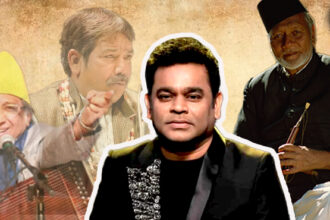Arundhati Roy is often introduced as India’s celebrated Booker Prize-winning author and Sydney Peace Awardee. Yet, behind the glamorous labels lies a darker legacy. The words from her pen and the speeches from her podiums have rarely served India’s interest. Over the years, Roy has steadily transitioned from being a novelist into one of the most prominent propagandists attacking India’s image at home and abroad.
Twisting Goa’s liberation into a “Hindu State Attack”
One viral video of Roy shows her claiming that post-independence India became a “colonial state” that waged military wars on its own citizens—in Kashmir, Punjab, the Northeast, Telangana, and Goa. She even describes the 1961 liberation of Goa not as freedom, but as an “upper caste Hindu state” attack on the Christian population.
The historical reality is very different. Operation Vijay in 1961 lasted just 36 hours and brought an end to 451 years of Portuguese colonial rule. India first tried peaceful negotiations, but Portugal refused to leave. Goa’s liberation was a step away from colonialism, not an act of communal aggression.
In fact, the Portuguese era (1560–1812) saw forced conversions, torture, and even burnings of Hindus and some Christians. The 1961 operation ended centuries of this brutality. Yet Roy selectively twists this truth to portray India as an “oppressor state.”
A habit of labeling India
Roy’s disdain is reflected in her repeated use of terms like “fascist,” “Hindu nationalist,” and “caste-based.” Her very first novel, The God of Small Things, depicted taboo caste-religion relationships and explicit content. It faced obscenity charges in India, with Kerala’s then Chief Minister calling it “highly obscene.” International critics were harsh too—Booker judge Carmen Callil called it “garbage” and The Guardian called it “disappointing.”
Despite criticism, the book sold millions worldwide. Provocation and sensationalism, it seems, were her ticket to global recognition.
Nuclear tests, Narmada and the “Urban Naxal” tag
Roy strongly condemned India’s 1998 Pokhran nuclear tests, calling them nationalist and environmentally disastrous. To her, these tests marked India’s descent into “militarism.”
She soon shifted from literature to activism. Initially, her involvement in the Narmada Bachao Andolan gave her the label of “social activist.” But gradually, her speeches revealed a larger agenda criticizing India itself rather than the issues at hand. It was during this phase that she was even branded an “Urban Naxal.”
Kashmir: Crossing the Line
Roy’s most notorious remarks came on Kashmir. On public platforms, she declared: “Kashmir is not an integral part of India.”
These statements were made not in isolation, but while sharing the stage with separatist leaders like Yasin Malik and Syed Ali Geelani. At a time when Indian soldiers were dying in the Valley, she was echoing Pakistan’s talking points by calling terrorism an “independence struggle.”
In 2010, she was booked for hate speech. In 2023, Delhi’s Lt. Governor sanctioned prosecution against her, and by mid-2024 she was charged under the Unlawful Activities Prevention Act (UAPA). In 2025, her book Azadi, which glorified separatist narratives, was banned in Jammu & Kashmir as part of a list of 25 books promoting separatism
Romanticizing Naxals and Terrorists
Roy has gone further by describing Naxals—who kill security forces and tribals alike—as “Gandhian rebels.” To her, their bloody campaign appeared as a “romantic revolution.”
Similarly, after the 2001 Parliament attack, while the nation welcomed the sentencing of terrorist Afzal Guru, Roy claimed he did not receive a fair trial. Sympathy for terrorists, silence for martyrs—this was her definition of activism.
She has also defended figures like Yasin Malik, expressed closeness with Umar Khalid (accused in the 2020 Delhi riots), and associated with journalists like Rana Ayyub. Reports also suggest her support for propaganda outfits like Alt News, run by Mohammed Zubair.
A Web of Leftist and Media Connections
Roy is not isolated. Her family and professional connections reveal a wider network. She is the cousin of Prannoy Roy, founder of NDTV—a channel accused of platforming propagandist journalists like Ravish Kumar, Rajdeep Sardesai, and Barkha Dutt.
Prannoy’s wife Radhika is the sister of CPI(M) leader Brinda Karat. Brinda’s nephew Vijay Prashad has been linked with Newsclick, a portal accused of Chinese propaganda funding and supporting “urban naxals” like Gautam Navlakha. These circles also had connections to Pakistani lobbyist Ghulam Nabi Fai.
Why Does Roy Do It?
The answer is simple: in India, Roy is deeply unpopular, but in the West she is celebrated. Every anti-India statement makes her a “free speech icon” abroad. Western NGOs, universities, and leftist organizations invite her, give her awards, and shower her with money.
It’s a clear game:
Defame India → Earn applause in the West.
Attack India’s image → Become a global “intellectual star.
The Final Irony
Arundhati Roy’s life is marked by a deep irony. She received her identity from India, her freedom of speech from India, and her fame from India. Yet she has used all of it to malign the very country that gave her everything.
While Indian soldiers sacrifice their lives on the frontlines, Roy sits comfortably in New Delhi and points fingers at them. She is not merely a writer, she is a professional India-basher.
Arundhati Roy gained wealth, name, and recognition from India. In return, she offered only insults.
And so the question remains:
Is Arundhati Roy truly a “brave writer”? Or has she become the brand ambassador of India-hate?







